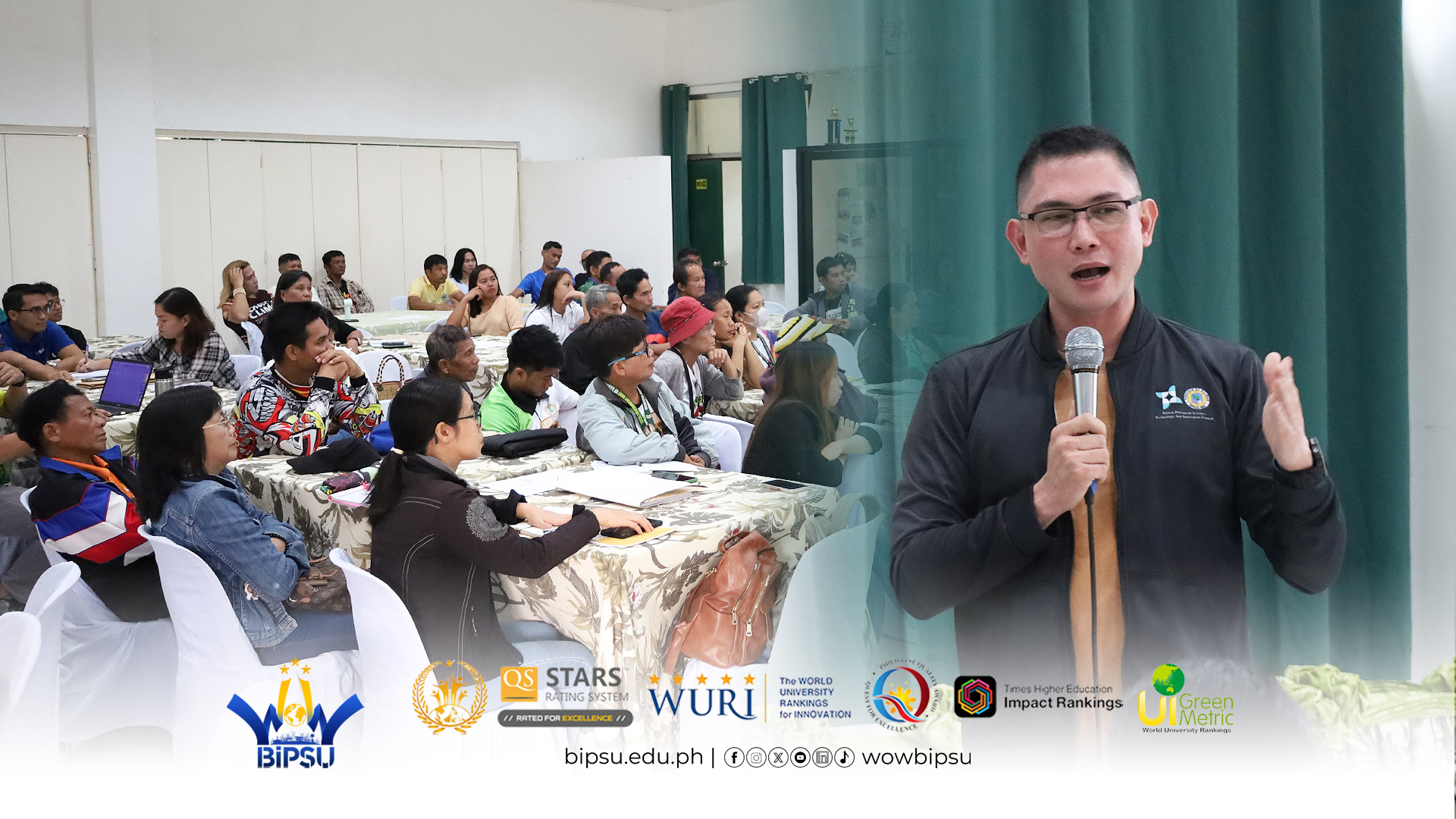Biliran Province State University, through the Department of Agribusiness Management of the School of Agribusiness and Forest Resource Management (SAbFoRM), presented a groundbreaking study on the current landscape of rice-based food products in Biliran Province.
BiPSU Innovation Office Director and Department of Agri-Business Management Chair, Associate Professor Jeruel A. Espinazo led the presentation of the results of their study titled “Mapping the Landscape of Rice-Based Food Products in Biliran Province: An In-depth Inventory and Profiling” during the MAs, AEWs, and Corn Stakeholders Meeting at Biliran Provincial Capitol Compound, Naval, Biliran on February 25. The said meeting was attended by provincial government officials, agricultural sector representatives, and other key stakeholders.
The study, conducted in partnership with the Philippine Rice Research Institute (PhilRice), aimed to document, analyze, and provide a comprehensive overview of rice-based food products in the province. It highlighted the vital role of this industry in local food security, economic development, and cultural heritage.
Alarming findings on production decline and economic impact
During his presentation, Assoc. Prof. Espinazo, the study leader, revealed that out of 405 producers surveyed, 40% had already ceased production, and of the 332 still operating, a significant portion are aged 56 to 83. This aging demographic signals a potential decline in the industry within the next decade.
According to Assoc. Prof. Espinazo, the study cautioned that if the decline in production persists, it could reduce economic activity in the province, impacting livelihoods and local businesses dependent on the industry. The aging workforce could lead to an estimated loss of ₱37 million in circulating revenue in the coming years if the trend is not reversed.
“Right now, these producers collectively generate P37-million in revenue,” he said. “If production continues to decline, Biliran will lose that amount from circulation – a massive blow to our local economy.”
The study also emphasized that the disappearance of specific rice varieties used in producing traditional food products could further aggravate the situation. Assoc. Prof. Espinazo emphasized that these varieties are essential not only for local livelihoods but also for preserving Biliran's cultural heritage, as some products are unique to the province.
Preserving rice varieties and heritage
In his presentation, the study leader outlined three strategic measures to address the challenges identified in the study.
According to him, there is a need to identify and conserve essential rice varieties. “We must work with local farmers and producers of rice-based food products to pinpoint which specific rice varieties are being used for these rice-based food products,” he said. “Once we have a clear list, we can take steps to protect and sustain their production.”
Assoc. Prof. Espinazo also proposed establishing seed banks and community-managed seed production programs. He noted that preventing scarcity from threatening production may start by ensuring that identified rice varieties are readily available to farmers.
Moreover, the study leader also suggested incentivizing farmers to keep growing the identified rice varieties. “Many farmers shift to commercial rice varieties for higher yields, but if we provide incentives, subsidies, or technical support, we can encourage them to maintain the traditional varieties essential for rice-based food products,” he said.
A call to action
Assoc. Prof. Jeruel Espinazo urged government officials and stakeholders to take decisive steps in addressing the challenges faced by the rice-based food production industry in Biliran Province. He emphasized the importance of immediate intervention to prevent further decline in production, which could lead to significant economic losses and the erosion of cultural heritage.
“Imagine a future where these traditional rice varieties are not just preserved – but thrive,” he mentioned. “Where our local rice-based food products are not only sustained but become a key part of our province’s identity and economy.”
Members of the research team including Christian Ulysses G. Cagasan. Constantino II P. Lazona, Dianne M. Dalin-as. Novie A. Sales, Divina L. Villaber, Judife N. Magallanes were also present
[This aligns with Sustainable Development Goal (SDG) 2: Zero Hunger, SDG 8: Decent Work and Economic Growth, and SDG 12: Responsible Consumption and Production]
-
 0
0
-
 19
19
-
 0
0
-
 0
0
-
 0
0
-
 0
0

